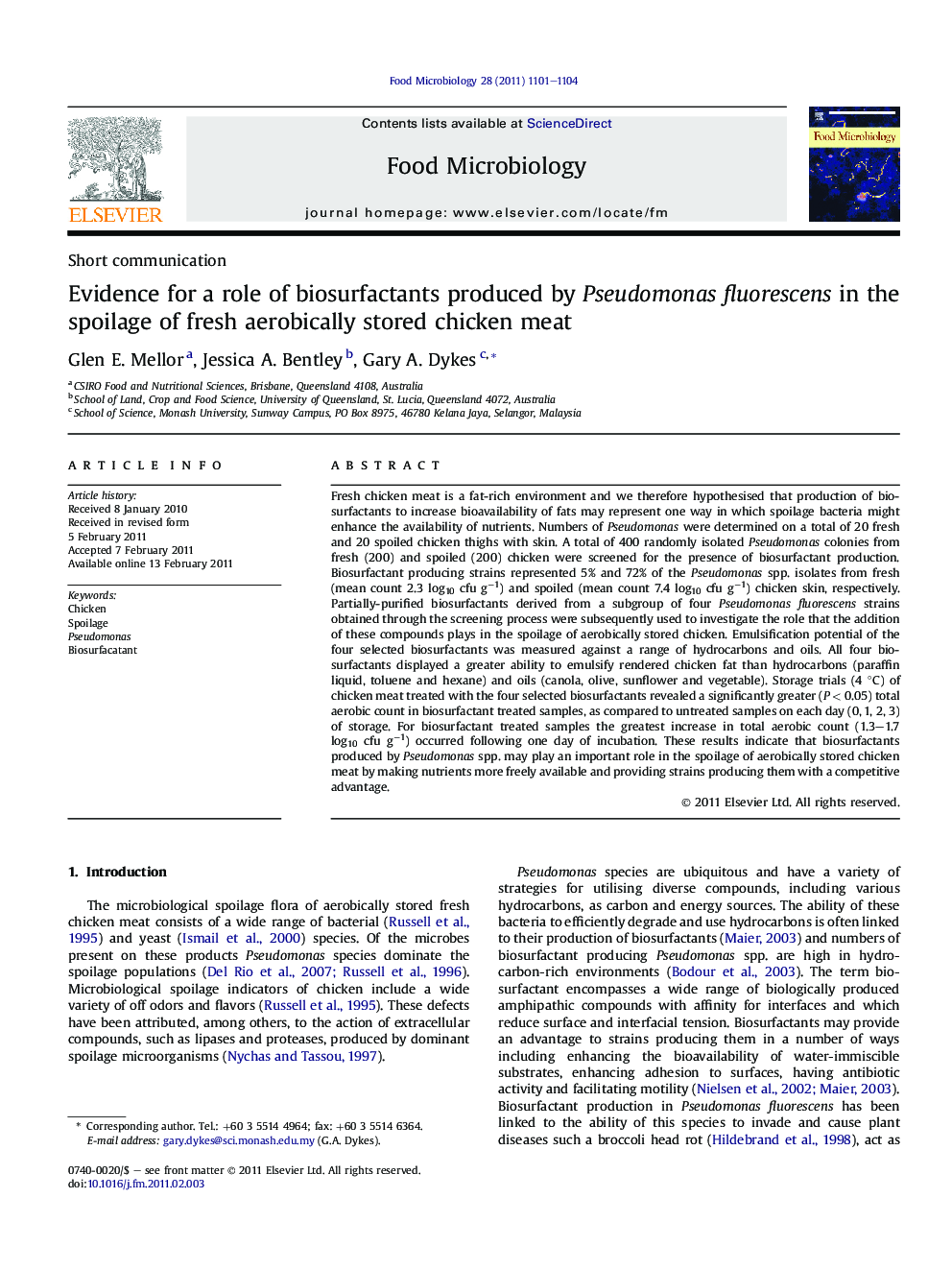| Article ID | Journal | Published Year | Pages | File Type |
|---|---|---|---|---|
| 4363176 | Food Microbiology | 2011 | 4 Pages |
Fresh chicken meat is a fat-rich environment and we therefore hypothesised that production of biosurfactants to increase bioavailability of fats may represent one way in which spoilage bacteria might enhance the availability of nutrients. Numbers of Pseudomonas were determined on a total of 20 fresh and 20 spoiled chicken thighs with skin. A total of 400 randomly isolated Pseudomonas colonies from fresh (200) and spoiled (200) chicken were screened for the presence of biosurfactant production. Biosurfactant producing strains represented 5% and 72% of the Pseudomonas spp. isolates from fresh (mean count 2.3 log10 cfu g−1) and spoiled (mean count 7.4 log10 cfu g−1) chicken skin, respectively. Partially-purified biosurfactants derived from a subgroup of four Pseudomonasfluorescens strains obtained through the screening process were subsequently used to investigate the role that the addition of these compounds plays in the spoilage of aerobically stored chicken. Emulsification potential of the four selected biosurfactants was measured against a range of hydrocarbons and oils. All four biosurfactants displayed a greater ability to emulsify rendered chicken fat than hydrocarbons (paraffin liquid, toluene and hexane) and oils (canola, olive, sunflower and vegetable). Storage trials (4 °C) of chicken meat treated with the four selected biosurfactants revealed a significantly greater (P < 0.05) total aerobic count in biosurfactant treated samples, as compared to untreated samples on each day (0, 1, 2, 3) of storage. For biosurfactant treated samples the greatest increase in total aerobic count (1.3–1.7 log10 cfu g−1) occurred following one day of incubation. These results indicate that biosurfactants produced by Pseudomonas spp. may play an important role in the spoilage of aerobically stored chicken meat by making nutrients more freely available and providing strains producing them with a competitive advantage.
► 5% of Pseudomonas from fresh and 72% from spoiled chicken produced biosurfactants. ► Biosurfactants emulsified chicken fat and other hydrocarbons. ► Exogenously added biosurfactants increased the rate of chicken spoilage. ► Pseudomonas biosurfactants may play a role in the spoilage of aerobically stored chicken meat.
